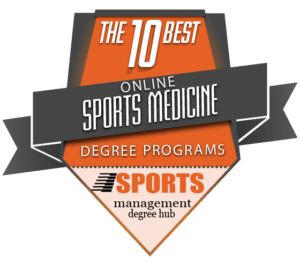 With Forbes recently projecting the sports industry to be worth around $74 billion by 2019, exercise science professionals stand to gain a lot of work: per the Bureau of Labor Statistics, athletic training jobs are expected to grow over 20 percent through 2024, physical therapists 34 per%, and exercise physiologists 11 percent, each well above the average rate of 5-7 percent. Following that trend, other professionals can expect to see a demand increase, as well — which has its pros and cons. On the one hand, healthy competition should create better jobs and better pay, but it also means exercise science professionals will need to bolster their resumes as much as possible.
With Forbes recently projecting the sports industry to be worth around $74 billion by 2019, exercise science professionals stand to gain a lot of work: per the Bureau of Labor Statistics, athletic training jobs are expected to grow over 20 percent through 2024, physical therapists 34 per%, and exercise physiologists 11 percent, each well above the average rate of 5-7 percent. Following that trend, other professionals can expect to see a demand increase, as well — which has its pros and cons. On the one hand, healthy competition should create better jobs and better pay, but it also means exercise science professionals will need to bolster their resumes as much as possible.
A master’s degree is a great way to stand out — demonstrating a solid knowledge base and practical know-how — and below we’ve compiled our top 10 online tracks.
Methodology:
- Affordability (1/3): The average cost per credit hour.
- Flexibility (1/3): The number of specializations, accelerated courses, start dates, and other features granting flexibility for the student.
- Academic Prestige (1/3): The academic prestige of the program’s parent institution according to national and international rankings and reviews.
1) Fresno Pacific University

Founded in 1944, Fresno Pacific University is a private school with a total enrollment of 3,700, including students from 31 countries, 31 religious denominations, and a variety of ethnic backgrounds. US News ranks among the top 45 colleges and universities in the West, and each program emphasizes solid academic preparation and a strong ethical foundation. FPU’s 13:1 student-to-faculty ratio supports both individualized instruction and collaborative learning opportunities, and over 75% of classes have less than 20 students (just 1% have 50). For those interested in financial aid, 84% of undergrads receive some form of aid, and the average need met is about 75%.
Fresno Pacific offers an online Master of Athletic Training that consists of 30 credits, which can be completed in as little as 13 months. Core requirements include Athletic Training Administration, Professional Standards in Athletic Training, Legal Aspects of Kinesiology and Sport, Values in Kinesiology and Sport, and several evidence-based Practice in Athletic Training courses. Finally, all students must complete a comprehensive exam to demonstrate mastery of the material. For maximum flexibility, the 100% online courses are asynchronous, allowing students to complete work on their own schedules, and FPU offers several start dates throughout the year. No GMAT or GRE scores are required for admission, but applicants should have earned at least a 2.75 undergraduate GPA.
- Homepage
- Tuition Per Credit: $560
2) University of Texas of the Permian Basin
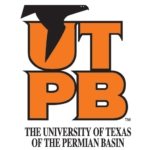
Founded in 1973, University of Texas of the Permian Basin has a total enrollment of about 5,900 (5,100 of which are undergraduates). UTPB ranks among the top public 40 colleges and universities in the region by US News, with top-rated individual programs across a range of disciplines. The university’s 24:1 student-to-faculty ratio supports a vibrant, collaborative educational community that still maintains individualized instruction. About a third of classes have less than 20 students and only 13% have 50. Over half of undergrads receive some form of aid, and the average need met is 70%.
UT Permian Basin offers an online MS in Kinesiology that consists of 36 credits, including core classes in Exercise Physiology, Sport Psychology, and Exercise Psychology, among others. From there, students can choose to concentrate in Exercise Science, with special requirements in areas like Training and Conditioning Methods, Applied Biomechanics, Motor Learning & Control, Nutrition in Health and Disease, and Sports Nutrition. (Other concentrations are available in Psychology of Sport and Teaching, Coaching, and Administration.) To further customize the curriculum, students complete several electives and choose either a thesis or non-thesis track. UTPB’s program combines online course work with traditional classroom education to create a dynamic hybrid delivery experience.
- Homepage
- Tuition Per Credit: $407
3. Concordia University – Chicago
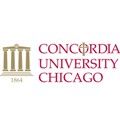
Founded in 1864 Concordia University – Chicago is a private school of the Lutheran Church-Missouri Synod with a total enrollment of 5,300, most of which are graduate students. The Chronicle of Higher Education and National Council for Accreditation of Teacher Education have each recognized Concordia for academic excellence, and the university’s 15:1 student-to-faculty ratio combines personalized instruction, one-on-one learning, and collaborative education opportunities. Nearly 80% of classes have fewer than 20 students, and none have more than 49.
Concordia’s online MS in Applied Exercise Science includes a concentration in Human Movement Science, which prepares students for the National Academy of Sports Medicine’s Corrective Exercise Specialist (CES) credential. The 30-credit curriculum consists of studies in Applied Exercise Physiology, Research Design and Methods in Exercise Science, Exercise and Sport Nutrition, Principles of Human Movement Science, and Program Design in Corrective Exercise Training, among several practicum courses and seminars. For maximum flexibility, classes begin three times per year and deliver in accelerated 8-week blocks; students can complete the degree in as little as 18 months. Admissions are rolling.
- Homepage
- Tuition Per Credit: $455
4. McNeese State University
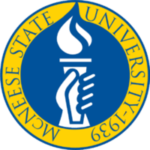
McNeese State University, founded in 1939, is located in Lake Charles, Louisiana, with a total enrollment of 8,200, including students from 30 states and 40 countries. US News ranks MSU among the top 100 colleges and universities in the South and 41st among public schools. It’s also earned a top ranking for affordable tuition and high average salary earnings. With a 20:1 student-to-faculty ratio, McNeese combines personalized instruction with a collaborative, tight-knit learning community. Over 40% of classes have fewer than 20 students, and less than 10% have 50.
McNeese offers an online MS in Health and Human Performance with a concentration in Health Promotion. All courses are designed for maximum flexibility to accommodate a variety of students, including adult learners and working professionals, and students have the option to pursue 100% online and hybrid delivery methods. Students with previous academic credits can take advantage of the university’s generous transfer program or accelerate their degree through portfolio work or placement exams. (Typically MSU requires at least 25% of credits to be earned through the university.)
- Homepage
- Tuition Per Credit: $506
5. Liberty University
![]()
Founded in 1971, Liberty University is a private Christian school in Lynchburg, Virginia, with an enrollment of 14,000 on-campus students and 100,000 online students, making Liberty a worldwide leader in distance education, particularly for working professionals and adult learners. For maximum flexibility, several programs offer intensive, on-campus summer semesters to accelerate course work, and Liberty’s transfer policy allows students with previous academic credit, work/life experience, military service, MOOC credits, standardized scores, and/or portfolios to apply for transfer credit. Most important, Liberty is able to offer the resources of a large university with those of a smaller liberal arts school: a third of all classes consist of less than 20 students and just 5% have 50.
Liberty offers an online MS in Exercise Science consisting of 35 credit hours, with four available specializations in Clinical, Community Physical Activity, Human Performance, and Nutrition. For each track, core requirements include Advanced Exercise Physiology, Advanced Exercise Physiology Lab, Statistical Analysis in Exercise Science, Research Methods in Exercise Science, Advanced Biomechanical Analysis, Advanced Biomechanical Analysis Lab, and Performance Nutrition for the Physically Active. Students then develop and defend a thesis. All courses are designed for maximum flexibility to accommodate unique schedules, but several courses are required intensives. Up to half of the credits can be transferred into the program, accelerating degree completion time. Liberty’s degree is accredited by the Commission for the Accreditation of Allied Health Education Programs (CAAHEP).
- Homepage
- Tuition Per Credit: $565
6. Logan University
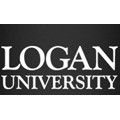
Founded in 1935, Logan University is located just outside of St. Louis, Missouri, with a total enrollment of about 1,000, the majority of which are graduate students. Specializing in chiropractic and health sciences, Logan has established itself as one of the best of its kind in the country, with a variety of unique programs and expert faculty with real-world experience. Thanks to its 9:1 student-to-faculty ratio, Logan offers a personalized education, with one-on-one instruction and peer-to-peer learning opportunities.
Logan offers an interdisciplinary, comprehensive MS in Sports Science and Rehabilitation that totals 39 online credits, including core classes in Anatomy of Human Motion, Psychology of the Athlete, Exercise/Cardiorespiratory Physiology, Research Methods in Health Care, Nutrition & Physical Performance, Biomechanics, and Principles of Physical Therapy, among others. From there, students have the opportunity to customize the degree through a range of practicum electives and must complete a 6-credit clinical internship to gain real-world experience. The program is designed for maximum flexibility, with three available start dates per year, and can be completed in as little as 5 semesters on an accelerated track. No GRE is required.
- Homepage
- Tuition Per Credit: $450
7. United States Sports Academy
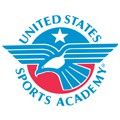
United States Sports Academy, founded in 1972, is a small private university in Daphne, Alabama. With a student-to-faculty ratio of 8:1, USSA is able to offer highly intimate, tight-knit classes that support individualized instruction and collaborative learning. (No classes have over 20 students.) Further, for a school of its size, USSA has excellent financial aid opportunities: 73% of full-time undergrads receive some form of aid, and 70% had their need fully met. 96% of graduates say they would recommend the university to friends and colleagues.
USSA offers a 33-credit MS in Sports Science, with concentrations available in Sports Coaching, Sports Management, Sports Studies, Recreation Management, and, most relevant to us, Sports Health and Fitness, which consists of eight courses and a mandatory nine semester-hour mentorship (450 clock hours). Some example classes include Psychological Aspects of Sports Medicine, Issues in Nutrition and Health, Management Strategies in Sports Medicine, Sports Biomechanics, Sports Performance Enhancement, Sports Conditioning and Strength, and Exercise Testing and Prescription, among others. Students have the option to choose a thesis, non-thesis, or mentor track, and emphasis areas are also offered to customize curricula. USSA is a member of the National Council for Accreditation of Coaching Education (NCACE).
- Homepage
- Tuition Per Credit: $620
8. University of Louisiana at Monroe

Founded in 1931 as Ouachita Parish Junior College, The University of Louisiana at Monroe has an enrollment of about 8,800. Washington Monthly rates UL Monroe highly, and US News ranks it among the best Tier 2 schools in the region. With a 19:1 student-to-faculty ratio, the university combines the best of both a large research university and small liberal arts school. Over a third of classes have less than 20 students, and just 15% have more than 50. For maximum flexibility, admissions are rolling.
ULM’s 36-credit online MS in Exercise Science includes a concentration in Sport Management. Core requirements are Sport Sociology, Governance and Ethics in Sport, Research Methods in Exercise Science, and Statistical Methods in Exercise Science. From there, students can customize the degree through built-in elective course work like Nutrition and Wellness, Advanced Strength and Conditioning, Sport Psychology, Sports Medicine, Safety and Risk Management in Sport, Marketing, and Public Relations in Sport, and Leadership and Administration in Sports. The program is accredited by the CAAHEP and holds an endorsement American College of Sports Medicine Program. Applicants must submit GRE scores and have an undergraduate GPA of at least 3.0.
- Homepage
- Tuition Per Credit: $500
9. The University of Texas at Tyler
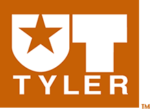
The University of Texas Tyler, founded in 1971, is ranked among the top 90 colleges and universities in the West and top 35 public schools in the region by US News, with an emphasis on small classes, enriched coursework, independent learning, and more. Total enrollment sits just below 9,000, and the university’s 18:1 student-to-faculty ratio supports a vibrant, collaborative learning community alongside personalized instruction. Over a third of classes have fewer than 20 students and just 10% have 50.
UT Tyler offers an online MS in Kinesiology that totals 36 hours, including core requirements in Research Design, Biometric Methods, Motor Learning, Exercise Physiology I (Skeletal Muscle & Metabolism), Exercise Physiology II (Cardiorespiratory), and Biomechanics. From there, students complete 12 elective hours to tailor the track to professional needs and interests, plus 6 credits of a thesis or internship. Appropriate for a range of clinical professionals like physical therapists and athletic trainers, all courses are designed for maximum flexibility to accommodate students’ schedules, with 100% online and hybrid delivery options. There are three entry dates throughout the year.
- Homepage
- Tuition Per Credit: $821
10. Sul Ross State University
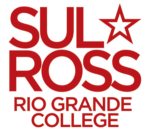
Founded in 1917, Sul Ross State University in Alpine, Texas, has a total enrollment of 3,000. SRSU’s 16:1 student-to-faculty ratio allows the school to operate on two levels: as a larger research university with vibrant, collaborative classrooms, and as a small liberal arts school with personalized instruction and one-on-one learning. Over 60% of classes have less than 20 students and just 2.5% have 50. Financial aid opportunities are available as well: 84% of full-time undergrads receive some form of aid.
Sul Ross’s online MS in Health and Human Performance consists of 33 credits, with studies in Group Dynamics, Motor Learn & Control, Physical & Human Performance, Health and Human Behavior, Advanced Human Nutrition, Issues in Sports Law, Research Methods, Diagnostic Tests & Measure, and a cumulative practicum or internship. Designed for maximum flexibility, courses are adapted to fit schedules of working professionals and adult learners, and students can opt to progress on an accelerated 1-year track (8-week course blocks) or part-time 2-year track. Applicants should submit GRE scores and have at least a 2.5 undergraduate GPA for their final 60 credits.
- Homepage
- Tuition Per Credit: $624